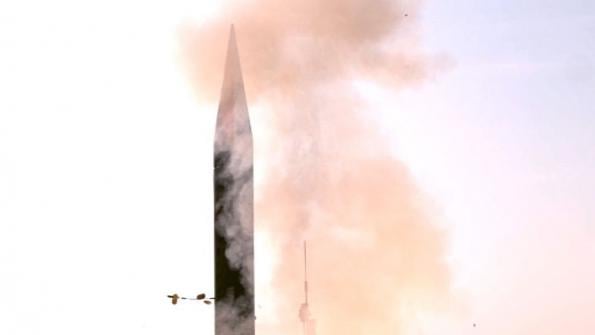
Arrow 3
Credit: U.S. Missile Defense Agency
Iranian forces fired more than 180 ballistic missiles at Israel on the night of Oct. 1, but caused minimal damage and two civilian injuries in the Tel Aviv area, according to initial reports. The head of the Israeli Defense Forces vowed after the strikes to retaliate against the Iranian regime in...
Subscription Required
Israeli, U.S. Forces Again Thwart Iran Missile Barrage is published in Aerospace Daily & Defense Report, an Aviation Week Intelligence Network (AWIN) Market Briefing and is included with your AWIN membership.
Already a member of AWIN or subscribe to Aerospace Daily & Defense Report through your company? Login with your existing email and password.
Not a member? Learn how you can access the market intelligence and data you need to stay abreast of what's happening in the aerospace and defense community.





